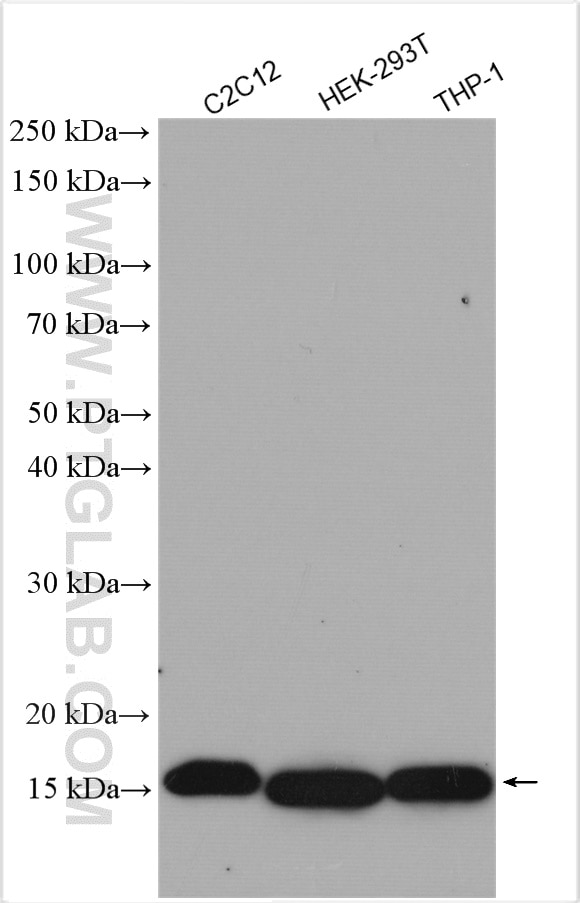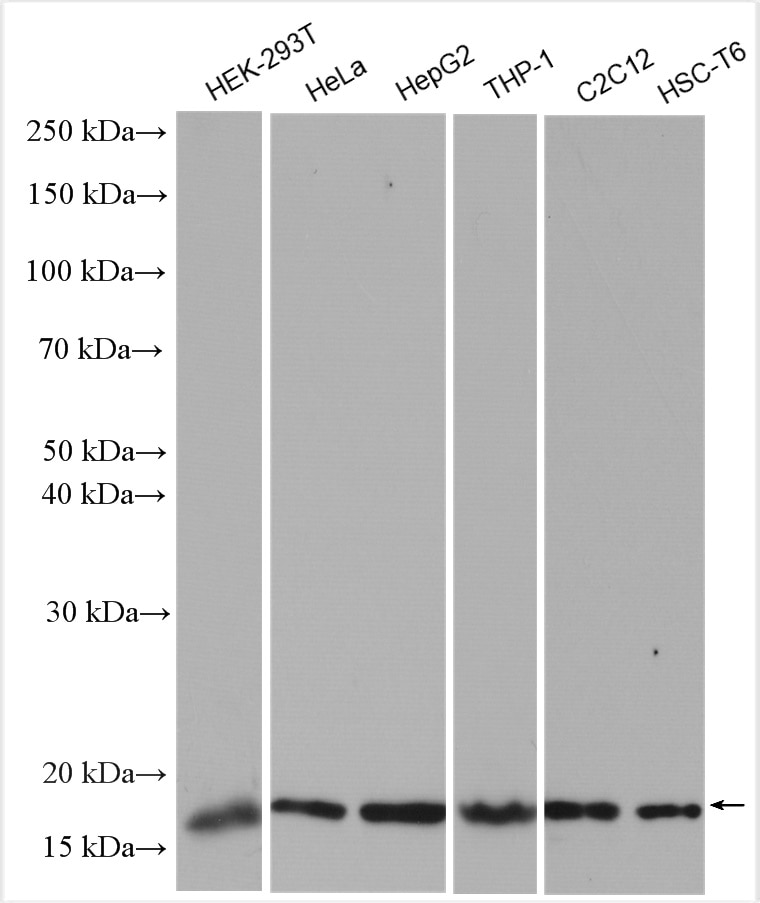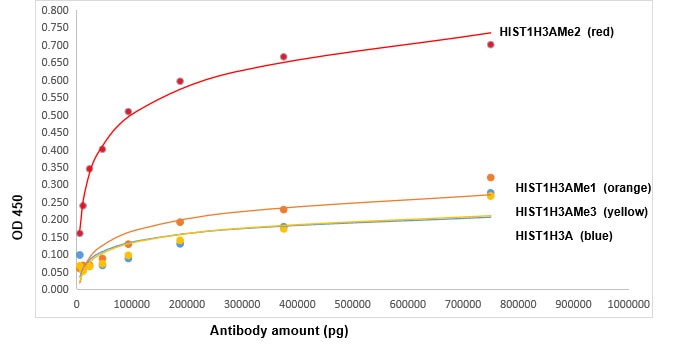Anticorps Polyclonal de lapin anti-Di-Methyl-Histone H3 (Lys36)
Di-Methyl-Histone H3 (Lys36) Polyclonal Antibody for WB, ELISA
Hôte / Isotype
Lapin / IgG
Réactivité testée
Humain, rat, souris
Applications
WB, ELISA
Conjugaison
Non conjugué
N° de cat : 29202-1-AP
Synonymes
Galerie de données de validation
Applications testées
| Résultats positifs en WB | cellules C2C12, cellules HEK-293T, cellules HeLa, cellules HepG2, cellules HSC-T6, cellules THP-1 |
| Résultats positifs en ELISA | Peptide, |
Dilution recommandée
| Application | Dilution |
|---|---|
| Western Blot (WB) | WB : 1:1000-1:8000 |
| Test immuno-enzymatique (ELISA) | ELISA : 1:32000-1:128000 |
| It is recommended that this reagent should be titrated in each testing system to obtain optimal results. | |
| Sample-dependent, check data in validation data gallery | |
Informations sur le produit
29202-1-AP cible Di-Methyl-Histone H3 (Lys36) dans les applications de WB, ELISA et montre une réactivité avec des échantillons Humain, rat, souris
| Réactivité | Humain, rat, souris |
| Hôte / Isotype | Lapin / IgG |
| Clonalité | Polyclonal |
| Type | Anticorps |
| Immunogène | Peptide |
| Nom complet | histone cluster 1, H3a |
| Poids moléculaire observé | 15-18 kDa |
| Numéro d’acquisition GenBank | BC066245 |
| Symbole du gène | HIST1H3A |
| Identification du gène (NCBI) | 8350 |
| Conjugaison | Non conjugué |
| Forme | Liquide |
| Méthode de purification | Purification par affinité contre l'antigène |
| Tampon de stockage | PBS avec azoture de sodium à 0,02 % et glycérol à 50 % pH 7,3 |
| Conditions de stockage | Stocker à -20 ℃. L'aliquotage n'est pas nécessaire pour le stockage à -20oC Les 20ul contiennent 0,1% de BSA. |
Informations générales
Histones, including H1/H5 (linker histones), H2, H3, and H4 (core histones), are nucleic proteins which interact with DNA to form the nucleosomes and play important roles in gene regulation and DNA replication. Histone proteins are highly post-translationally modified while Histone H3 is the most extensively modified.The NSD family histone methyltransferases, including NSD1, NSD2 and NSD3, play crucial roles in chromatin regulation and are implicated in oncogenesis (PMID: 33361816).NSD enzymes exhibit an auto-inhibitory state that is relieved by nucleosome engagement, allowing for H3K36 di-methylation catalysis (PMID:22099308).
Protocole
| Product Specific Protocols | |
|---|---|
| WB protocol for Di-Methyl-Histone H3 (Lys36) antibody 29202-1-AP | Download protocol |
| Standard Protocols | |
|---|---|
| Click here to view our Standard Protocols |




